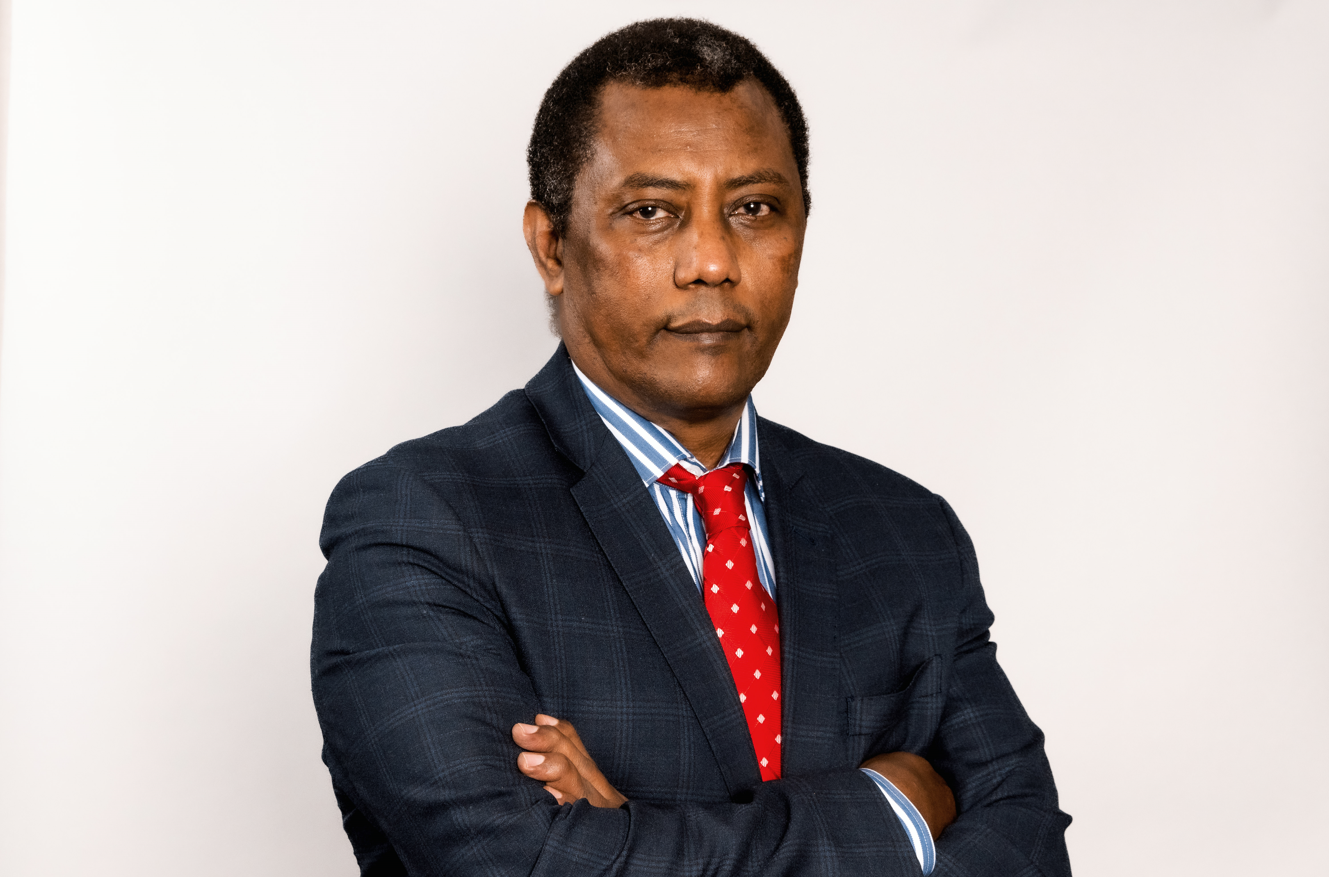Celebrating 2024 World Radio Day with SBS Audio

Story by Leah Boonthanom:
Today is World Radio Day, an opportunity to celebrate the power of radio to inform, entertain and educate audiences, and to recognise the critical role this unique medium plays in building connection and community.
SBS itself started as two small multilingual radio stations in 1975 tasked with sharing information to Australia’s growing migrant population about the new Medibank universal health care system (now Medicare).
Today, SBS broadcasts in more than 60 languages across multiple audio platforms, driven to inspire all Australians to explore, respect and celebrate our diverse world and in doing so, contribute to a cohesive society.
SBS spoke to its Italian Executive Producer, Magica Fossati (main photo) and SBS Amharic Executive Producer Kassahun Negewo (pictured below), who bring almost 50 years of radio experience between them, about how their work is making a difference for Australia’s multicultural communities.

When did you join SBS, and why?
Kassahun: I was previously an Editor-In-Chief for a major national newspaper in Ethiopia and began my radio career after settling in Australia as a refugee in 1998 and starting the country’s first-ever Amharic radio program. I joined SBS Amharic in 2015 as an RMIT University radio intern. Working at SBS as part of 60+ language programs collaborating harmoniously daily makes me feel like a true global citizen. It instils hope for a future where different peoples, cultures, and faiths interweave seamlessly. This is the unique power of SBS.
Magica: I have always loved radio and joined SBS Italian 20 years ago shortly after migrating to Australia. Back then I couldn’t have imagined this would become such a pivotal and long professional experience. I immediately fell in love with the job – despite the early morning shifts! – and I’m struck by the beauty of working in such a multicultural environment of dedicated professionals, with a deep knowledge of their own communities and Australia at large.
What led you to Australia?
Kassahun: I arrived in Australia on 10 February, 1998, as part of a refugee resettlement program. I left Ethiopia due to the press freedom restrictions imposed by the government at the time, which included personal threats from security forces in response to our newspaper’s news reports.
Magica: I came to Australia for the first time in 1997, but I moved here permanently only in 2003, mainly because my husband is Australian and after living together for a few years in Italy we decided it was time to give his home country a go.
Why is multilingual radio important for our migrant communities?
Kassahun: SBS Amharic helps migrant and refugee communities to navigate their new environment and access essential services such as healthcare, education, employment opportunities, language learning, and legal information, so they can participate in society and feel they belong. We also produce content directly from Ethiopia about events, politics, and cultural developments, which helps to nurture a sense of connection to their roots and maintain cultural ties. In this way, listening to Australian-based in-language content differs from listening to content broadcast from the home country, because it’s tailored to their specific needs and interests.
Magica: As radio presenters we weave stories and can also directly engage with our audiences and create a shared space for our community of listeners. Being able to listen to a radio program in your own language with a strong Australian focus provides you with the ability to feel connected to your new country while retaining your language or despite not having mastered English yet. This is what makes SBS so unique and this is why people tune in despite having access to many other options to listen to their own language online.
Why is radio unlike any other medium?
Kassahun: Radio stands out from other mediums due to its simplicity, ability to provide real-time information during emergencies, and the personal connection listeners develop with hosts through their spoken words and tone of voice. It’s also readily accessible via multiple platforms, including car radios, online streaming, and television.
Magica: It might have to do with the sheer power of voices – there’s something direct and intimate about listening to someone communicate only through their voice. When listening (rather than watching) you actively produce your own mental images while going about your business, and that’s almost a magical process. I am always struck by how familiarly listeners treat us when they meet us in person – we truly become part of their daily lives.
What’s one of your most memorable moments on air?
Kassahun: Listening to people’s powerful stories firsthand – about the Nauru refugee camp, domestic violence, and tales of survival in war-torn areas – always evokes profound emotions, often accompanied by sorrow and tears. It is emotionally challenging as a journalist; I would like to detach myself and let individuals share stories while experiencing a deep empathy for their pain and suffering. On the other hand, cultural and religious community events filled with joy, happiness, and hope provide comfort and inner peace. For example, every Ethiopian New Year in September, the Australian Prime Minister and the Leader of the Opposition address the Ethiopian community through SBS Amharic, which holds great significance and privilege for our listeners.
Magica: I am always extremely grateful to people who share their very personal stories with me and our audience. I remember interviewing a mother who lost her newborn, reliving her immense pain while talking to me just because she wanted to spread awareness and inform people who may be going through similar experiences or know someone affected by the same issue. I was extremely humbled by how she entrusted me with such a powerful and difficult story.
What’s something we mightn’t know about your language community?
Kassahun: One of the unique aspects of Ethiopians is their rich cultural heritage and history. Ethiopia has never been colonised, and the Amharic language, distinct script, and calendar (which currently marks the year 2016) contribute to its uniqueness. Ethiopian cuisine, featuring dishes like Injera (a sourdough flatbread) and Doro Wot (spicy chicken stew), is renowned for its flavour traditions.
Magica: Italian-Australians are such a diverse community! It spans people from different generations, including those who migrated to Australia at different times or were born here, and it boasts a wealth of different cultural aspects tied to regional backgrounds, such as their own distinct dialects. Generally, Italian-Australian share a deep love for their adoptive country, Australia, while retaining a deep connection to Italy, which I find moving.
How are you leveraging the power of new audio formats?
Kassahun: New audio formats such as live streaming and podcasts, as well as the use of photos, videos and infographics online and on social media, are helping us to reach broader audiences. This cross-platform approach has provided a transformative shift for multicultural media in terms of engagement, meaningful representation, and the inclusion of diverse voices and perspectives in Australia, as I experienced during SBS Amharic’s coverage of the 2023 Australian Indigenous Voice Referendum.
Magica: I am proud of the way SBS Italian is embracing both podcasting and online articles to enrich the way we communicate with our audience no matter the time or place. Some people still prefer to listen to linear broadcasting, others (often younger) prefer to listen to our podcasts or follow us mainly on social media reading articles we link to on our profiles.
What advice would you give someone who wants to work in the industry today?
Kassahun: Pursue relevant education fields such as journalism, media studies, communications, and/or broadcast production. Be open to learning new technologies and continue to adapt to the evolving media landscape. Networking, following ethical guidance, staying curious, and honing critical thinking skills are vital aspects of success in the industry.
Magica: Be ready to never stop learning, be curious and be a good listener, and always remember to respect your [on air] talent and your audience. We have an immense responsibility towards society as media and storytellers.
*Leah Boonthanom is Corporate Communications Manager at SBS Audio.



